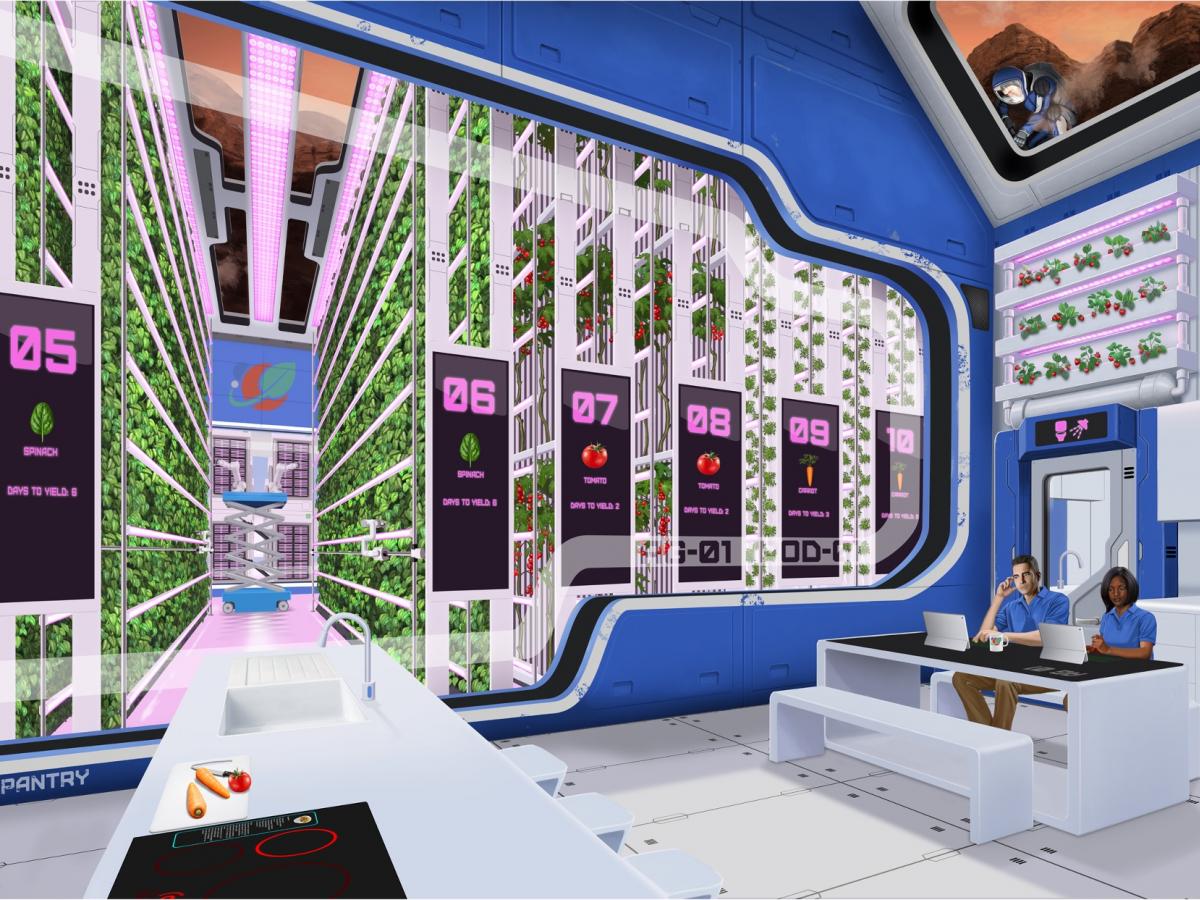UK Space Agency backs Plants for Space partner
The University of Adelaide’s Plants for Space program has attracted international investment from the UK Space Agency, through industry partner Vertical Future (VF).

Artist's impression of a Mars living environment. Image: Bruce Moffett / University of Adelaide
VF is the fastest-growing vertical-farming research and development company in the United Kingdom, and the funds will go towards developing a controlled-environment agriculture facility suitable for space missions.
The project will research the design requirements for a fully autonomous agriculture system that can be monitored and operated remotely or with artificial intelligence, which will be used to support future space explorations, including NASA’s future Moon-to-Mars Artemis missions.
It will also test data transfer requirements between the Vertical Future facilities installed at the company’s R&D site in London, England and at the University’s Waite Research Institute.
“Our consortium will collaboratively design experiments whilst VF collects data remotely from our plant growth systems,” said Director of Plants for Space, Professor Matthew Gilliham.
“Through this collaboration, we will develop new ways to monitor plant health that will eventually facilitate remote plant management.”
The Australian Research Council Centre for Excellence in Plants for Space will help to establish a long-term human presence in space, with Professor Gilliham saying these technologies will also be applied to terrestrial agriculture.
“Designing plant growth systems that can work autonomously will help us to deliver our aims of enabling long-term space habitation, and we will also be able to utilise the technology we develop to improve sustainability of food, medicine, and material production on Earth,” he said.
Chief Scientific Officer at Vertical Future, Dr Jennifer Bromley, also highlighted that investment in research and development for space-exploration technologies will benefit people on Earth.
“While this project may sound like the plotline of The Martian, it is important to develop new and innovative ways for astronauts to survive and thrive in their ventures to not just the Moon but also Mars and beyond,” said Dr Bromley.
“As we have seen with many other technological advances thanks to the space industry, we will also be able to apply our findings here on Earth, where we continue to develop Vertical Future technologies.”
Chief Executive of the UK Space Agency, Dr Paul Bate, said the ambition of the project is made possible by its international scope.
“Projects like this, which will see Vertical Future work with the University of Cambridge and partners in Australia and the US to develop the use of autonomous agriculture technology for space exploration, highlight the many ways in which we can collaborate with the global space community to help humanity push the boundaries of space innovation,” said Dr Bate.
Vertical Future has also partnered with Saber Astronautics, the University of Southern Queensland and P4S partners Axiom Space and the University of Cambridge.
Media contact:
Professor Matthew Gilliham, Director, Waite Research Institute, The University of Adelaide, Phone: + 61 0431 663 614, Email: matthew.gilliham@adelaide.edu.au
Johnny von Einem, Media Coordinator, The University of Adelaide. Mobile: +61 0481 688 436, Email: johnny.voneinem@adelaide.edu.au
